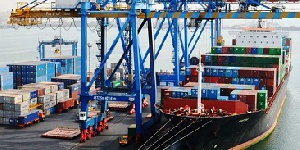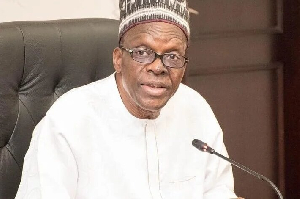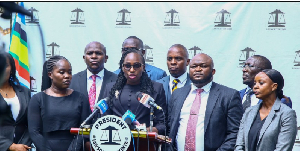Meridian Port Services Limited (MPS) and EIFFAGE Génie Civil have reached an agreement to extend the original FIDIC Yellow Book Contract to include land works for the fourth new berth of the MPS Terminal 3—which is part of Phase 2 of the Tema Port Expansion Project.
Over the past two years, EIFFAGE has devoted its effort to complete Phase 1 of the Tema Port Expansion Project and has successfully laid 41.5 million pavement blocks on the first 98 of the 127 Hectares on land reclaimed from the sea.
The works included drainage, waste-water treatment plant, water & fire hydrants, electrical and IT fibre networks, 1400 reefer container plugs and a 12 MW back-up power plant.
The marine works for Phase 2 were completed back in July 2020 by China Harbour Engineering Company (CHEC) 2 years ahead of schedule and the land civil works for the 4th New Berth are set to be completed in September 2021 which is 9 months ahead of the MPS contractual commitment.
During the contract exchange meeting, the Contract Manager of EIFFAGE, Mr. Mohammed Juma, revealed that the contract extension entails building the yard from the reclaimed land level by the marine contractors to the final pavement including the formation of pavement layers with all the required data-networking, electrical, drainage, lighting and mechanical services etc.
The land works covers 4.2 ha right at the terminal’s waterfront (400m along the quay wall by 105m deep into the yard) stretching the MPS Terminal 3 quayside to 1,400m at dredged level of -16.90 m CD which will make the 4 th New Berth fully operational (400m long).
Upon successful completion, the estimated total annual handling capacity of the MPS Terminal 3 will be in the range of 2.5 million TEUs where the actual volume handled in 2020 is in the range of 1.2 million TEUs.
Boosts terminal capacity for transhipment
Transhipment remains a key goal for ports in the region as West Africa still lacks a well-developed transhipment hub.
MPS Terminal 3 of Tema Port has on this premise raised the bar to cater for this need.
With improved handling capacity and a comparative advantage with the world-renowned transhipment hubs; MPS continues to put Ghana on the map in the maritime sector thus making a strong case for recognition as the hub of West Africa.
“This state-of-the-art terminal and its enhanced capacity are purposely aimed at catering for the anticipated volumes increase that will come in as more shipping lines realise the added value that MPS Terminal 3 contribute to their market range and share of the West African trade volume,” said Mr. Mohamed Samara, MPS’ Chief Executive Officer.
The container shipping industry is rapidly transforming, and it takes those who are keen on staying ahead to respond to this evolution and realise how much they can harness from what is developing around them.
Ghana and the industrial port city of Tema presents huge potential for growth in the maritime sector as it is poised to attract more business as general trade and industry picks up in the country.
Readiness for AfCFTA take off
From the onset, MPS has invested in Ghana’s economic growth and connectivity to the world and for many years to come with obvious knock-on effect on the region’s economy.
The new port facility is taking Ghana’s leadership one step further and positions it as an economic power and a leading economy in Africa, scaling up growth and employment in Ghana as well as within the whole Western African region.
Come next year in January 2021 when trading officially begins on the AfCFTA platform, Ghana is already ready in the area of logistics and specifically port infrastructure.
The added capacity that will be present by the completion of the 4th New Berth during the 2nd half of 2021, a year ahead of schedule, will further boost Tema Port’s capabilities to contribute to the success of AfCFTA.
Being one of the strongest emerging economies in West Africa (2nd largest) with a sturdy growth rate and burgeoning youthful population, many industrial companies have taken advantage and started to set up shop in Ghana to prepare for their penetration into the wider African market.
This is bound to be a game-changer for the model maritime nation.
Click to view details



Business News of Saturday, 19 December 2020
Source: thebusiness24online.net

















